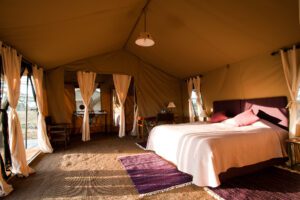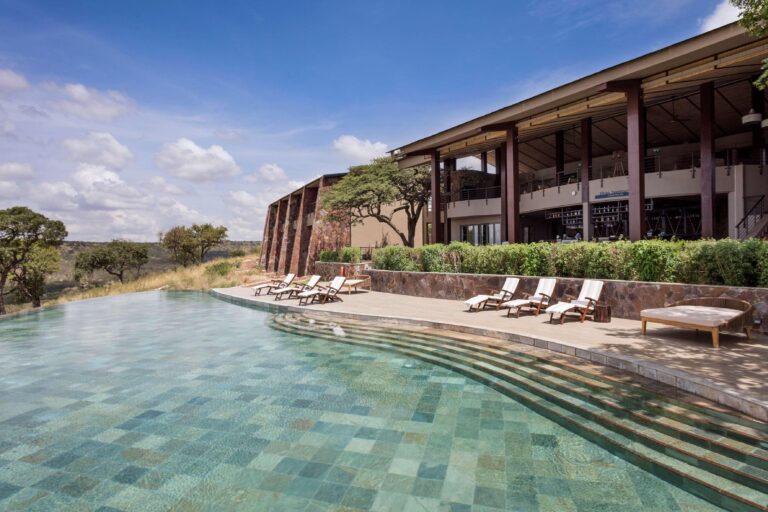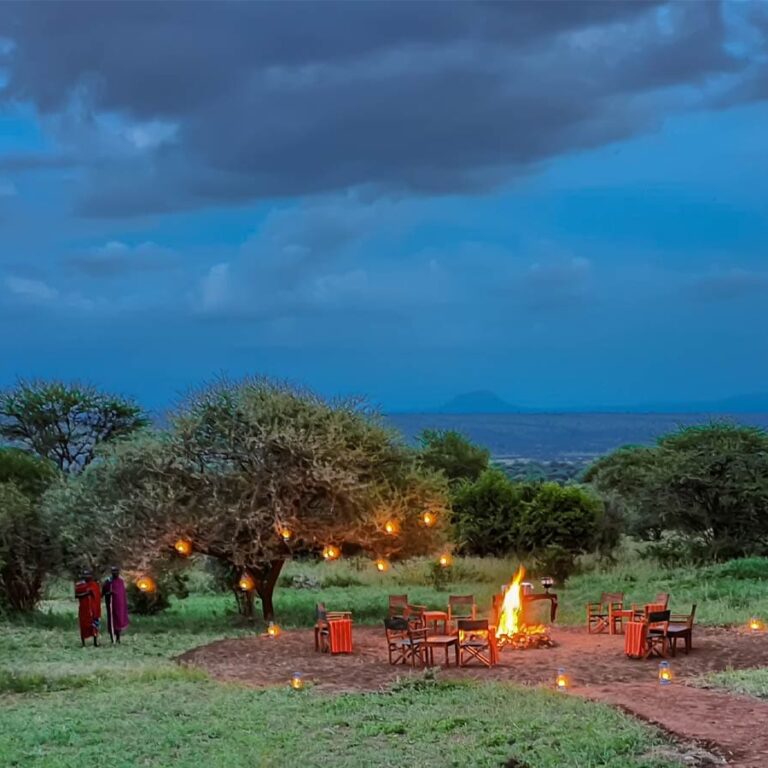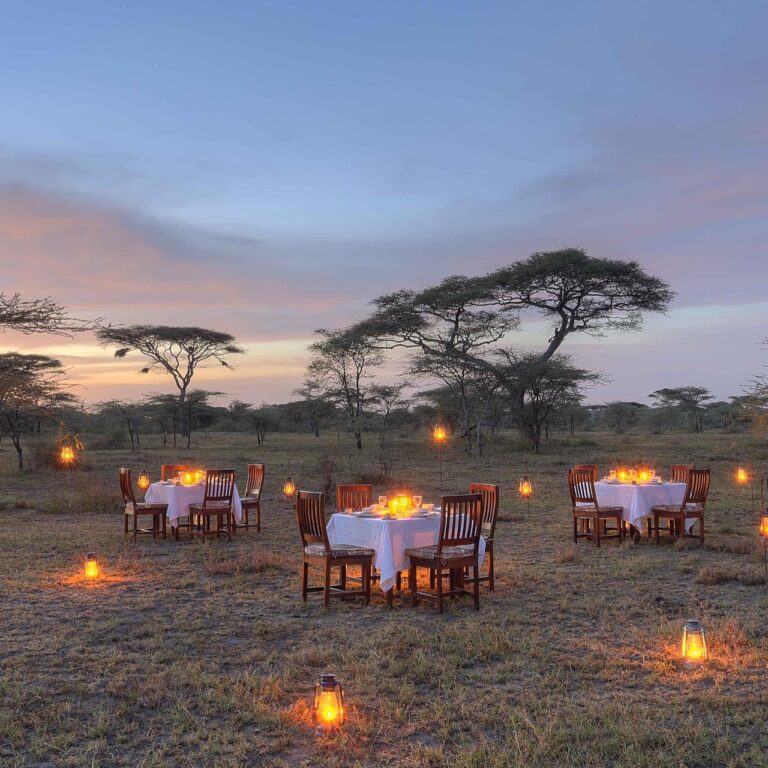Embarking on an African safari tour can be an exhilarating experience, combining adventure, wildlife viewing, and cultural immersion. As you prepare for this unforgettable journey, you might have several questions. Embarking on an African safari is an unparalleled adventure, offering an opportunity to immerse oneself in the breathtaking landscapes and diverse wildlife of the continent. However, planning such an expedition can be daunting, with numerous questions lingering in the minds of travelers.
African safari FAQs cover common concerns about safety, cost, health precautions, what to pack, and best times to visit. Safaris are generally safe, especially organized ones, with qualified guides and priority given to visitor safety in lodges and parks, but standard precautions in urban areas apply. Costs vary significantly based on destination, luxury level, and duration, with budget options starting around $350 per day and luxury safaris exceeding $1,000 per day.
Essential health precautions include consulting a medical professional for necessary vaccinations and malaria prevention, as well as packing light, neutral-colored clothing, sun protection, and appropriate gear for specific activities like gorilla trekking. The best time to visit depends on the region and desired experience, with the dry season often favored for game viewing but the wet season offering calving and predator activity.
What is an African Safari?
An African safari is a journey through the wilderness of Africa, typically focused on observing and experiencing its rich wildlife and natural beauty. Safaris can take various forms, including game drives, walking safaris, and hot air balloon rides, allowing visitors to explore different ecosystems and encounter iconic species such as lions, elephants, and giraffes.
Where Can I Go on an African Safari?
Africa boasts a multitude of safari destinations, each offering unique experiences. Popular countries for safaris include Kenya, Tanzania, South Africa, Botswana, Zimbabwe, and Namibia. Each destination has its own distinct attractions and landscapes, from the vast plains of the Serengeti to the lush Okavango Delta.
When is the Best Time to Go on Safari in Africa?
The ideal time for a safari varies depending on the destination and the specific wildlife experiences you seek. In general, the dry season, which typically falls between June and October, is considered the best time for wildlife viewing in many regions, as animals gather around water sources, making them easier to spot. However, some areas offer exceptional experiences during the wet season, such as witnessing the Great Migration in the Serengeti.
What Animals Can I See on an African Safari?
African safaris offer the opportunity to encounter a wide array of wildlife species, ranging from the majestic Big Five (lion, elephant, buffalo, leopard, and rhinoceros) to cheetahs, zebras, wildebeests, and countless bird species. The specific animals you may see depend on the location and ecosystem of your safari destination.
How Long Should I Spend on African Safari?
The duration of your safari largely depends on your personal preferences and budget. While some travelers opt for short, three to four-day safaris, others choose extended expeditions lasting seven to ten days or more to fully immerse themselves in the wilderness and explore multiple regions.
What Should I Pack for an African Safari?
Packing essentials for an African safari include lightweight and breathable clothing in neutral colors, sturdy walking shoes, a wide-brimmed hat, sunglasses, sunscreen, insect repellent, binoculars, and a camera with plenty of memory cards. Additionally, it’s crucial to bring any required medications and ensure you have proper travel insurance.
Is it Safe to Go on Safari in Africa?
Safety is a top priority for safari operators, who adhere to strict guidelines to ensure the well-being of their guests. While wildlife encounters are inherently unpredictable, experienced guides prioritize the safety of visitors and are trained to handle various situations effectively. Following their instructions and staying vigilant can minimize risks and ensure a safe and enjoyable safari experience.
What Accommodation Options are Available on African Safari?
African safaris offer a range of accommodation options to suit every preference and budget, from luxurious tented camps and lodges to rustic bush camps and mobile tented safaris. Each type of accommodation provides a unique experience, whether you prefer the comfort of a deluxe lodge or the intimacy of a remote bush camp under the stars.
How Do I Choose the Right African Safari Operator?
Selecting a reputable safari operator is essential for a successful and memorable experience. When choosing a safari operator, consider factors such as their experience, expertise in the region, safety record, and commitment to responsible tourism practices. Reading reviews from previous guests and seeking recommendations from trusted sources can help you make an informed decision.
What Activities Can I Do on African Safari Besides Game Drives?
In addition to traditional game drives, many safari destinations offer a variety of other activities to enhance your experience. These may include guided bush walks, boat safaris, cultural visits to local communities, hot air balloon rides, birdwatching excursions, and even adrenaline-pumping activities such as bungee jumping or white-water rafting in nearby areas.
How Do I Plan a African Budget-Friendly Safari?
Planning a budget-friendly safari involves careful research and consideration of various factors, including the destination, time of year, accommodation options, and activities included in the package. Opting for off-peak travel seasons, booking group tours, and comparing prices from different operators can help reduce costs without compromising on the quality of your safari experience.
What Should I Expect from African Safari Accommodations?
Accommodations on safari range from luxurious lodges with all-inclusive amenities to basic bush camps offering a more authentic wilderness experience. Regardless of your choice, safari accommodations typically provide comfortable beds, en-suite bathrooms, and essential facilities such as dining areas, lounges, and outdoor spaces where you can relax and soak in the surroundings.
How Do I Prepare for African Safari Wildlife Encounters?
Encountering wildlife on safari is an exhilarating experience, but it’s essential to approach these encounters with caution and respect for the animals’ natural habitat. Always follow the guidance of your experienced guide, maintain a safe distance from wildlife, avoid making sudden movements or loud noises, and never attempt to feed or touch the animals.
What Should I Know About Conservation Efforts in African Safari Destinations?
Conservation plays a vital role in preserving Africa’s natural heritage and safeguarding its wildlife for future generations. Many safari operators actively support conservation initiatives through partnerships with local communities, wildlife conservation organizations, and sustainable tourism practices. By choosing eco-friendly lodges and participating in conservation activities, travelers can contribute to these efforts.
Can I Customize My African Safari Experience?
Absolutely! Many safari operators offer customized itineraries tailored to your preferences, allowing you to choose the destinations, activities, and accommodations that best suit your interests and budget. Whether you’re a wildlife enthusiast, a photography buff, or seeking a romantic getaway, a customized safari ensures a truly personalized and unforgettable experience.
How Do I Capture Memorable African Photos on Safari?
Capturing stunning wildlife photos on safari requires patience, skill, and the right equipment. Be sure to bring a camera with a telephoto lens to capture distant subjects, as well as a wide-angle lens for landscapes and group shots. Practice your photography skills before your trip, experiment with different settings and compositions, and seize every opportunity to capture the beauty of Africa’s wildlife and landscapes.
What Should I Know About Local African Cultures and Customs?
Respecting local cultures and customs is essential when traveling in Africa. Take the time to learn about the traditions, etiquette, and taboos of the communities you visit, and always ask for permission before taking photos or engaging in cultural activities. Embracing cultural diversity enriches your safari experience and fosters meaningful connections with the people you encounter along the way.
How Do I Minimize my Environmental Impact on African Safari?
Practicing responsible tourism is crucial for minimizing your environmental impact on safari. Respect wildlife and their habitats by adhering to designated trails, avoiding littering, and refraining from disturbing animals or their natural behaviors. Choose eco-friendly accommodations that prioritize sustainability and conservation efforts, and support local businesses and communities through responsible purchasing and cultural exchanges.
What Should I Do in Case of an Emergency on African Safari?
While emergencies are rare, it’s essential to be prepared and informed about the appropriate procedures in case of unexpected situations. Safari guides are trained to handle medical emergencies and other contingencies, so follow their instructions calmly and promptly. Be sure to carry a first-aid kit, emergency contacts, and any necessary medications with you at all times, and communicate any health concerns or special requirements to your safari operator in advance.
How Can I Make the Most of My African Safari Experience?
To make the most of your African safari experience, embrace every moment with curiosity, openness, and gratitude. Immerse African Safari FAQs yourself in the sights, sounds, and sensations of the wilderness, and savor each encounter with wildlife as a unique and precious gift. Take time to connect with nature, reflect on the beauty of the African landscape, and create memories that will last a lifetime.
How much does a Safari in Africa Cost?
The cost of an African Safari can vary widely based on factors such as accommodation type, group size, and travel season. Luxury lodges and private guides can enhance the experience but come at a higher price. Additionally, African Safari FAQs park fees and transportation costs contribute to the overall expense.
Can Children go on an African Safari Tour?
Yes, children can enjoy safaris! Some lodges offer family-friendly accommodations and activities. Check age restrictions and plan accordingly African Safari FAQs. A safari can be an educational and memorable experience for kids.
What should I wear on an African Safari?
Dress comfortably and practically. Neutral colors are ideal to blend with the environment. Lightweight, breathable clothing, a wide-brimmed hat, and sturdy shoes are essential. Don’t forget sunscreen and insect repellent.
What type of Medication should I take along on an African safari?
Consult your doctor before traveling. Common items include anti malaria, first aid supplies, and any necessary prescriptions. Be African Safari FAQs prepared for minor health issues and follow safety guidelines.
Why should I choose an African safari tour?
During a African Tanzania safari or a Kenya safari, you can see one of the most iconic events on Earth. Every year, over 1.5 million wildebeest, accompanied by approximately 200,000 zebras migrate across the plains of the Serengeti National Park in Tanzania, and the Masai Mara in Kenya.
What does a typical day look like on safari?
A typical day on an African safari usually consists of game viewing in scenic surroundings, in the company of knowledgeable guides and with delicious local meals served upon your return to the camp or lodge. Of course African Safari FAQs there are different ‘typical days’ depending where you’re on safari.
What should I consider when choosing an African safari tour?
When choosing an African safari tour, consider factors like destination variety, accommodation quality, guide expertise, and ethical practices. Ensure African Safari FAQs the tour aligns with your interests, budget, and desired level of adventure. Research reviews and testimonials, inquire about group sizes, and confirm included activities. Opt for operators with a commitment to wildlife conservation and sustainable tourism. Ultimately, prioritize safety, authenticity, and a memorable experience.








